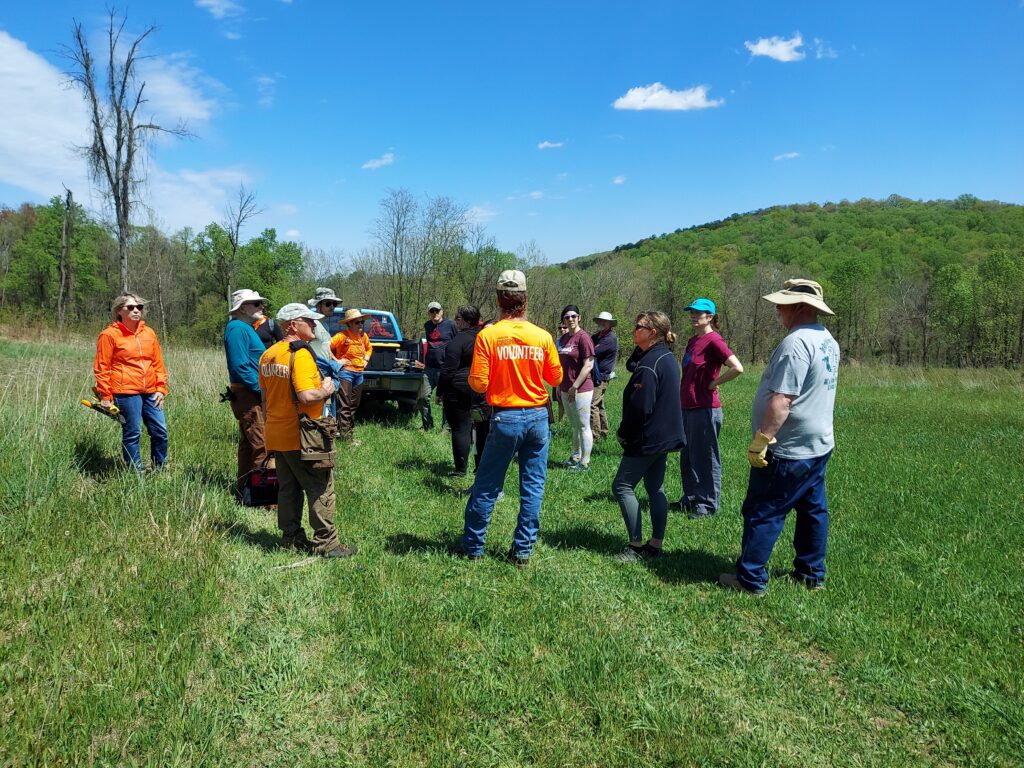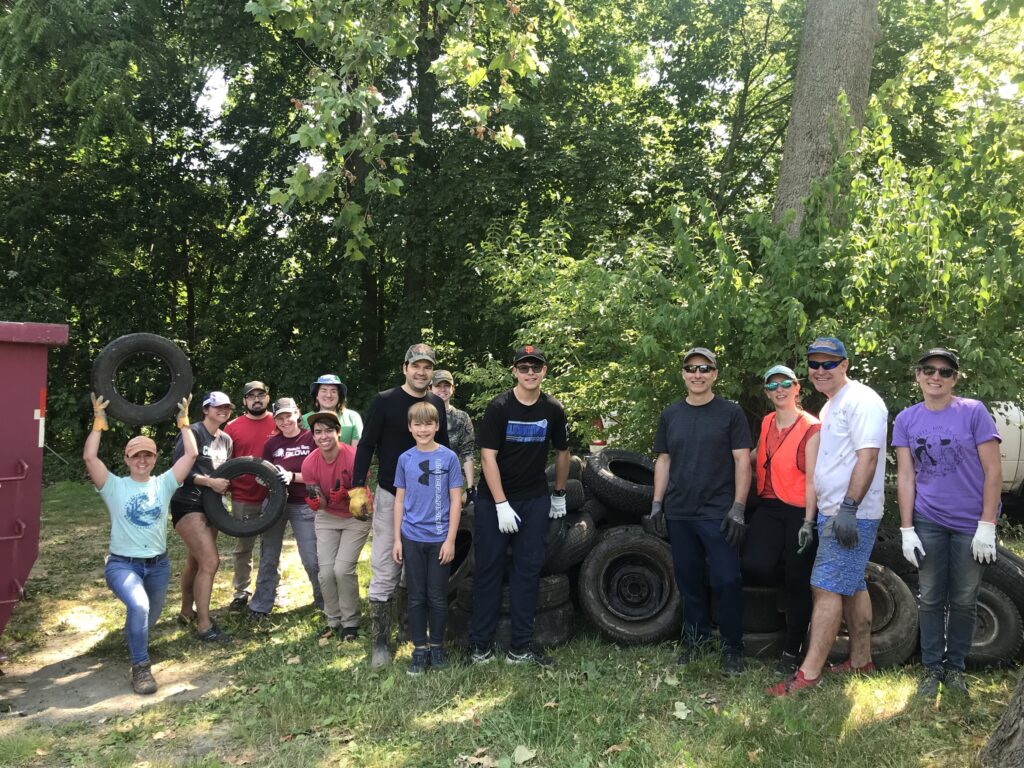At the Lancaster Conservancy, our mission is to provide wild and forested lands and clean waterways for our community, forever. As we work to protect our wildlands, restore healthy ecosystems, and provide opportunities for people to connect with the outdoors, every day feels like Earth Day at the Conservancy!
Whether you celebrate Earth Day, Week, or Month – or even “Earth Year” like us – this holiday is a great reminder to acknowledge and appreciate our important natural lands. These wild spaces provide clean air and clean water, places to recreate, opportunities to connect with each other and our environment, and more! Spending time in nature is linked to improved physical and mental health. There’s even an entire outdoor economy in Pennsylvania that’s growing thanks to spaces for outdoor recreation. And on top of all that, our wildlands provide habitat for plants, bugs, and animals.
If you want to take care of our forests, meadows, wetlands, streams, and rivers, here are five steps you can take – during Earth Month, and all year long!
5 Steps You Can Take for Our Natural Lands
1. Volunteer

Volunteer workday at Wizard Ranch Nature Preserve (Photo by Fred Bogner)
Volunteering with nonprofits and other groups working to care for our environment is a fantastic way to have a lasting positive impact. Lancaster Conservancy’s volunteers are essential to our efforts to restore our environment and connect people with nature. They remove invasive plants that threaten biodiversity, monitor water quality of local streams, and provide Leave No Trace education to help visitors enjoy the outdoors respectfully and responsibly. There are several ways you can volunteer with the Conservancy, from joining a public workday to becoming a Volunteer Land Steward. Learn more here.
2. Leave No Trace
Head outside and explore nature! Walking or running along a wooded trail, searching for birds in a meadow, or enjoying a relaxing picnic beside a stream are opportunities to connect with the natural lands we’re working to protect. But whenever you go outdoors, be sure to practice Leave No Trace ethics! These seven principles – things like plan ahead and prepare, travel on durable surfaces, leave what you find – help you ensure that you have a minimal impact on the natural spaces you enjoy. Learn more here.

Volunteers removed 200 tires from the Conestoga River during the 2023 Water Week Community Cleanup (Photo by Kelly Snavely)
3. Clean Up Litter
Cigarette butts can take up to 10 years to decompose, according to Stacker. Plastic bottles can take 450 years to decompose. Monofilament fishing line can take 600 years. Tires can take 2,000 years. Litter can be spotted along roadways, riverbanks, and even hiking trails. You can help care for our wildlands and wildlife by cleaning up litter. Consider collecting a few pieces of trash the next time you head outside for a walk. (And also look for opportunities to reduce the number of single-use products you consume so we can create less trash in general!)
4. Create Habitat
Support wildlife by creating habitat in your community, your backyard, or even a planter outside your window. To thrive, animals need food, water, shelter, and places to raise their young. When you plant native trees, shrubs, and flowers, you help fulfill these needs for our birds, bees, butterflies, and other wildlife. Native plants are indigenous species that have evolved and occur naturally in a particular region. When we plant native species, we support the animals that rely on them and foster diverse, resilient ecosystems. Learn more here.
5. Donate!
Nonprofits like the Lancaster Conservancy that are caring for our planet cannot do this critical work without your support! You can donate to Lancaster Conservancy at lancasterconservancy.org/donate.
